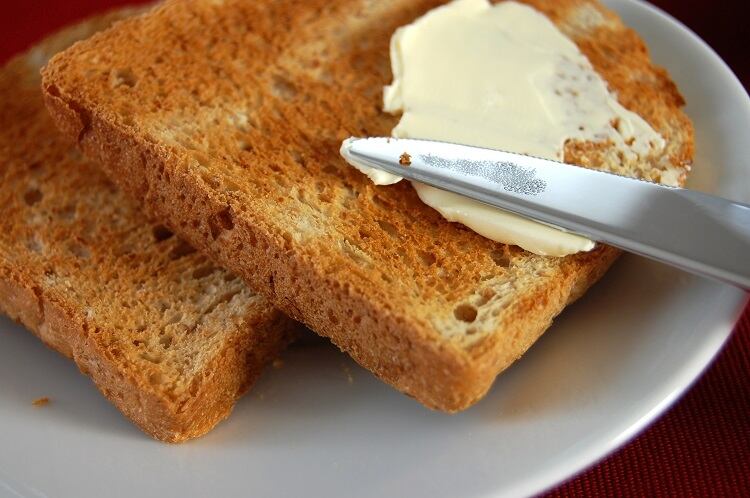At a time when ‘clean label’ and ‘natural’ foods are the trendiest on-shelf, and growing scientific evidence points to links between ultra-processed foods and health risks, it is unsurprising that processed foods are falling out favour.
According to a 2020 survey by the European Consumer Organisation (BEUC), foods that are ‘minimal processed, traditional’ matter to consumers. Such foods are most valued by consumers in Portugal, Greece and Lithuania, who associate them with ‘sustainable food’.
In another survey, undertaken by L.E.K Consulting, consumers said the most important claim when purchasing food and drink was ‘no artificial ingredients’, followed by ‘no preservatives’. In fourth place was a preference for the ‘all natural’ claim.
Yet according to research professor at Ghent University Andreja Rajkovic, processed foods are not wholly deserving of their bad reputation, and should not be perceived unilaterally as either ‘friends or foes’.
Rather, at the European Food Information Council’s (EUFIC) Processed Foods Symposium last week, the microbial food safety expert argued that certain processed foods more than merit their place in today’s society.
What does food processing bring to the table?
At a personal level, Rajkovic himself opts for a minimally processed, clean label diet.
However, acknowledging that adhering to such a diet requires both time and money, his professional opinion supports food processing where appropriate. In fact, Rajkovic argues that food processing brings a great number of benefits to society.
Amongst the positive reasons for processing food, the research professor counted its ability to reduce food spoilage, extend shelf-life, and increase food safety.
In this respect, processing food also helps reduce food waste, he explained. “A large proportion of food produced never actually gets eaten, but is thrown away – either through the processing [stage] or during household storage.”

Processing can also be used as a tool to modify the flavour, texture, aroma, colour or form of food. It can transform an ingredient, or a matrix of ingredients, into something that is ‘palatable, eatable, and appealing to the consumer’, Rajkovic told delegates.
“Try to convince kids to eat broccoli and it will take you probably 20 servings before they start to ‘sort of’ like it. Try to give them ice cream, and it will take one or two times before they start liking it.
“So [in this instance], you could do something to help healthy broccoli consumption.”
Processed foods also align with the requirements of modern life, the food safety expert continued, referencing the importance of convenience in today’s consumers. “No processing and no ‘smart additions’ won’t work for today’s food choices.”
The business of food processing should also be perceived as a benefit. In Europe, the food industry employs close to 5m people and boasts a turnover of €1.2trn, which would be significantly impacted without the processing of food and food ingredients.
And finally, food processing enables innovation in the sector, said Rajkovic. “The idea that you can modify food and create a new processes and products – and [in turn] bring something back to society – also turns society into engaged, employed personnel. And I think this is also very important to keep in mind.”
Processing done right
There are multiple instances where food processing has benefited human health. These examples, however, appear to receive less media attention in the ‘processed foods’ story.
During Rajkovic’s presentation, he referred to the processing of grains – including sorting, trimming, cleaning, cooking, baking, frying and roasting – which can help reduce the amount of mycotoxin contamination.
Aflatoxins are one such kind of mycotoxin. Produced by certain moulds growing on agricultural crops, naturally occurring aflatoxins are classified as human carcinogens by the International Agency for Research on Cancer (IARC). “Processing, therefore, takes something away from [the cereals] which we know is cancerogenic,” stressed Rajkovic.
Another example of food processing welcomed by health-conscious consumers – and in particular, those focused on calories and saturated fat intake – concerns low fat spread.
“One of the things in the modern world that we run away from is dense calorie intake,” explained the research professor. “We want to use fat-reduced products so that we put lower amounts of dangerous fats in our body, such as saturated fats.”
One-hundred grams of conventional butter contains 80% fat and 737kcal. However, consumer demand for lower fat alternatives has prompted a ‘healthier’ response from manufacturers, Rajkovic told delegates.
The resulting low fat spread has half the calories of generic butter and just 35% fat. Of course, this ‘healthy’ alternative is processed. Emulsifiers are required due to the increased water activity in the product and additives are included to ensure long shelf-life and microbial food safety.
“There are good reasons to add stuff. Organic acids lower the pH and also work as an antimicrobial agent. Food preservatives and antioxidants inhibit microbial and chemical…spoilage. [And] fortifiers raise the nutrient levels in food,” we were told.

“If you don’t do that, a lot of people in the world won’t have enough Vitamin D or Vitamin C etc. So, there are things that sensibly need to be added.
“If you don’t add, we are going to have a very fast growth of pathogens,” he said. “The processing and additions of things are meaningful sometimes, if you know why we are doing it.”
A holistic approach
Rajkovic’s professional opinion is that processed foods needn’t be considered through a black and white lens. And moving forward, the consumer ‘definitely’ needs key elements from industry and government.
These include ‘clear’ information on the risks and benefits of processed foods. Consumers also require policy ‘which is both protective and based on scientific evidence’, but which Rajkovic stressed is ‘not conservative’ – so that it ‘does not stop development’.
In such policies, respect for food, health, and environment should be present, as well as consideration for food waste. Climate change, obesity, and hunger should all be part of the equation, he continued.
The research professor also advocated for a ‘holistic’ approach to health. This should include lifestyle, exercise, sleep and stress. “This is an important aspect.”




